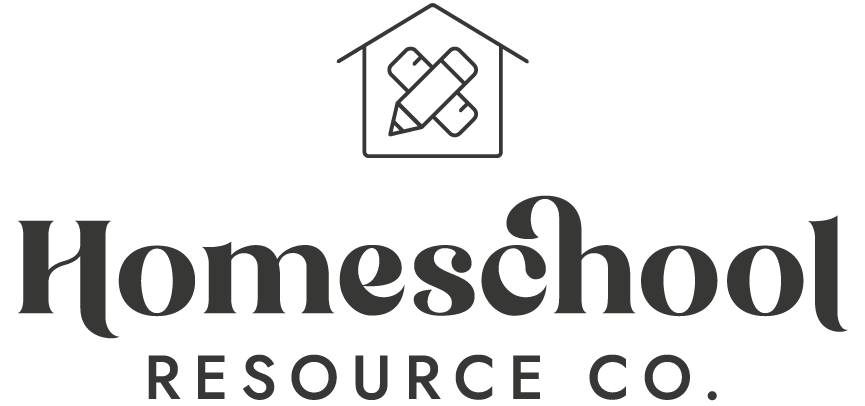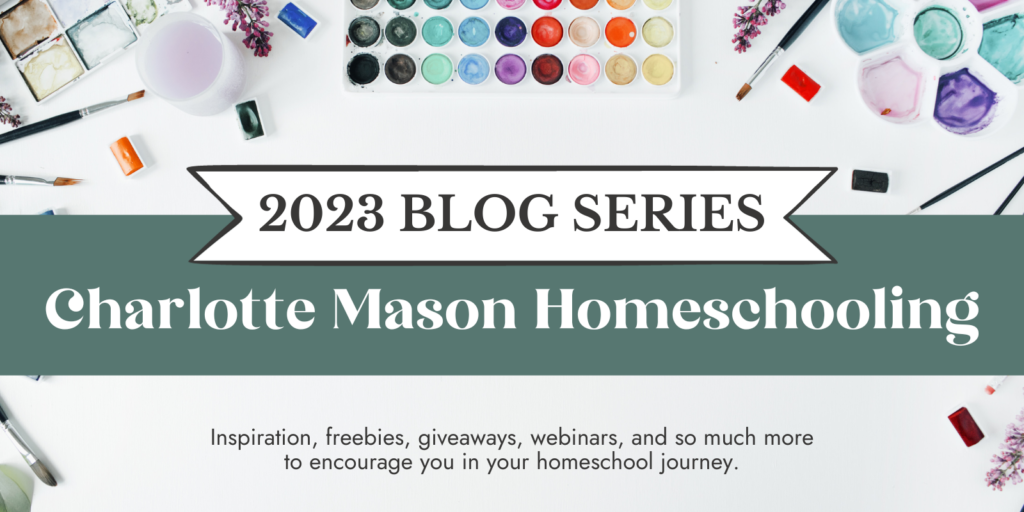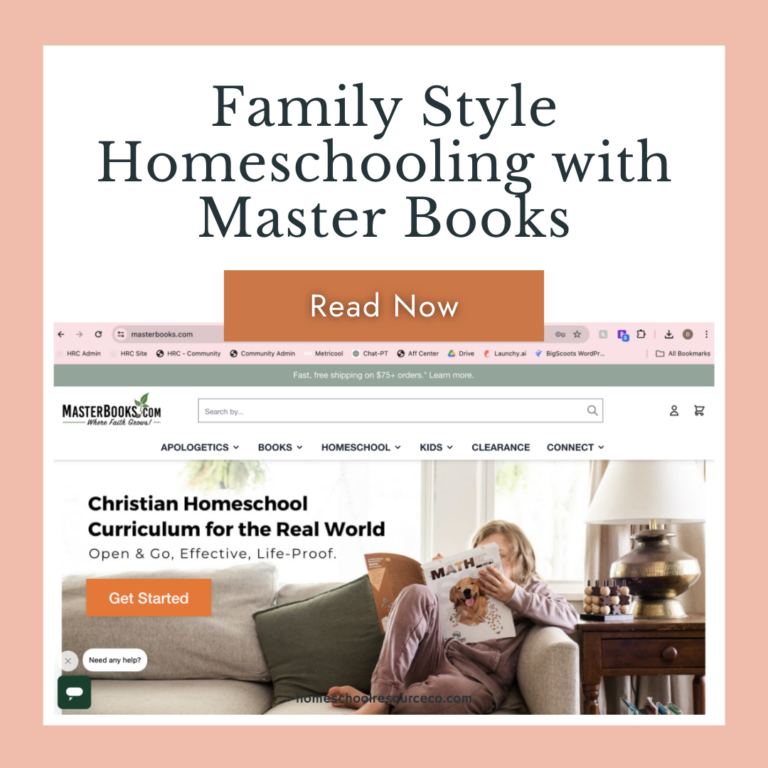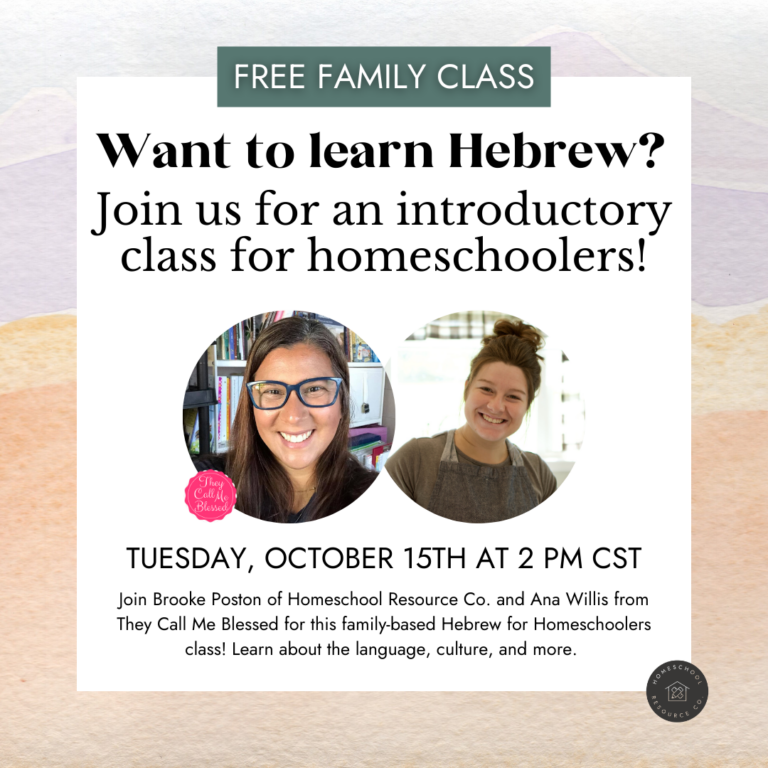What is the Charlotte Mason Approach for Homeschooling?
In the ever-changing world of homeschooling, there is a timeless and gentle approach that families have cherished for generations – the Charlotte Mason approach. This educational approach embraces the beauty of learning through nature, literature, and building character.
If you're looking for an educational path that nurtures a love for learning and respects every child's unique gifts, the Charlotte Mason approach may be what you've been searching for on your homeschooling adventure. Follow along as we begin our series on the Charlotte Mason homeschooling method. We will discover the life and principles of Charlotte Mason, what she was known for, and how her theories have shaped how countless families approach homeschooling.
Who Was Charlotte Mason?
Charlotte Mason was a British educator who lived in the late 19th and early 20th centuries. Her innovative ideas and educational philosophies continue to inspire homeschooling families worldwide – you've probably heard terms like “Charlotte Mason method” or “Charlotte Mason homeschooling” buzzing around the homeschool world. Born in 1842 in England, Mason's upbringing and experiences influenced her unique approach to education. She believed that education should encompass more than just textbooks and exams. Instead, Mason advocated for a holistic education that nurtured the whole child.
Mason's life was marked by a passion for learning and a strong desire to share knowledge with others. She pursued higher education, attending the Home and Colonial Training College in London, where she developed her unique educational principles. Her experiences as a teacher and later as a school administrator further solidified her belief in the importance of cultivating a child's love for learning through living books, nature study, copywork, and narration.
Mason established the Parents' National Educational Union (PNEU) in 1887, an organization dedicated to spreading her educational philosophy. Her legacy lives on through her many published works, including the very popular series of volumes titled “The Original Homeschooling Series” (now out of print), which continues to guide homeschooling parents in implementing her methods today.

What was Charlotte Mason Known For?
Charlotte Mason's approach recognizes children as complete individuals, created with an innate desire to learn and grow. Instead of viewing education as merely conveying or memorizing facts, Mason's approach aims to cultivate a lifelong love for learning by educating the “whole person.” It's an approach rooted in respect for the child's unique nature and a belief that children actively seek knowledge and have a desire to learn.
She defined her approach to education by saying, “Education is an atmosphere, a discipline, a life.”
Education is an atmosphere
Mason believed that learning happens constantly and the environment a child is exposed to plays a significant role in their learning experience. Your child observes and picks up your beliefs, attitudes, and ideas in your daily interactions. These play an essential part in their education.
Education is a discipline
Building good habits in children leads to more productive adults and is the foundation of character building. Mason believed that by putting effort into forming habits, whether physical, mental, or religious, they can become stronger than natural instinct.
Education is a life
The final principle of Charlotte Mason's theory on educating children is that education is based on ideas and not merely knowledge and memorizing facts. She believed education should be based on ideas and cultivated using living books, studies of great artists and composers, nature studies, and hands-on methods.
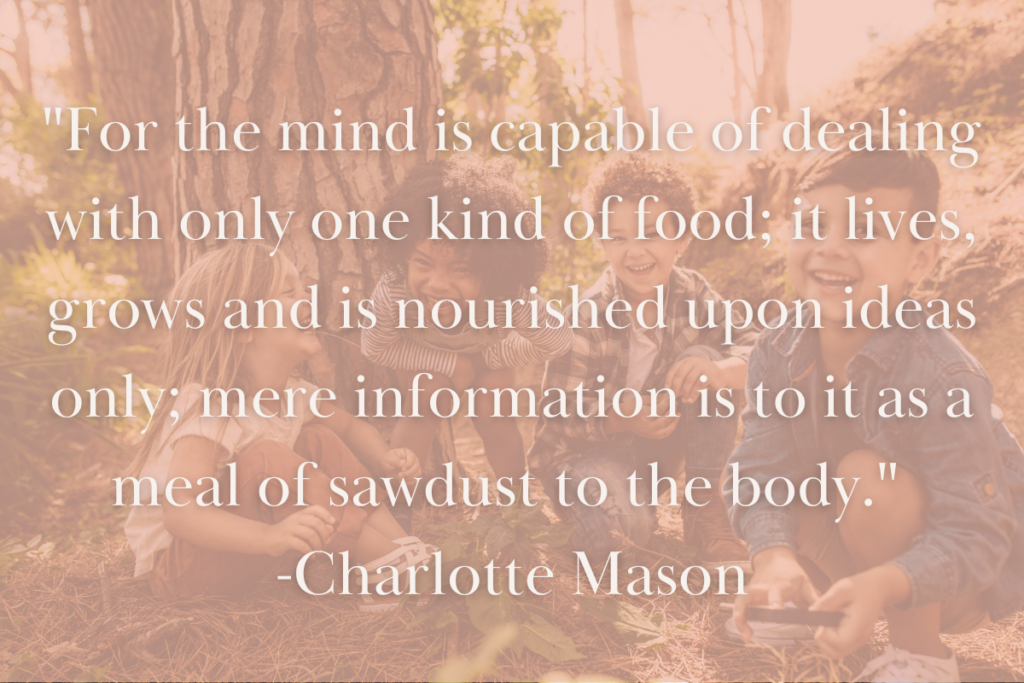
While there isn't an out-of-the-box “Charlotte Mason curriculum”, there are some key components of a Charlotte Mason education that include:
- Living books
- Narration and copywork
- Nature study
- Focus on music and art appreciation
Through her approach, Mason shook things up a bit, offering an exciting alternative that grabbed the attention of educators and parents who wanted a more well-rounded and child-centered education. This method has endured for over a century and remains a popular homeschooling style today.
Be sure to follow along in our Charlotte Mason homeschool series!
